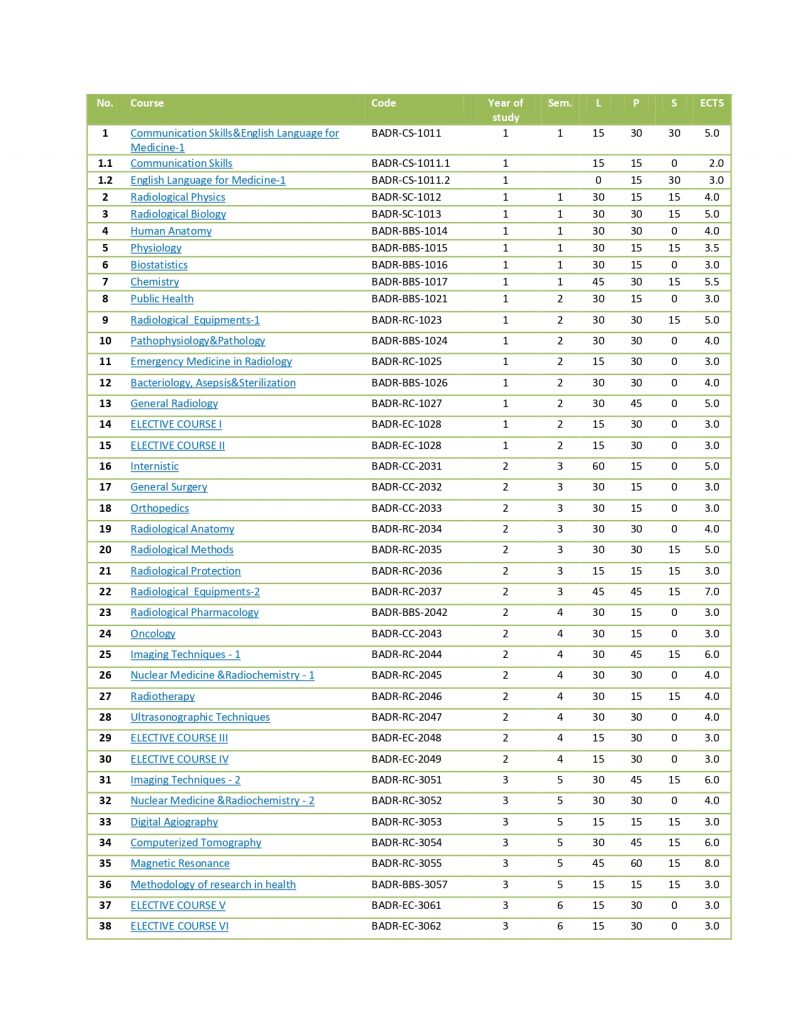BSc Diagnostic Radiology (180 ECTS):
The program is modeled on qualification objectives. The program refers to academic competencies, the ability to obtain adequate employment by combining the theoretical with the practical aspect and the development of students’ personalities in the fields of specialization.
The individual components of the program are combined to best achieve the specified qualification objectives and provide adequate forms of teaching and learning.
The disciplines within the curriculum are organized in a logical flow and complement the precise definition and determination of general and specific competencies, as well as the compliance with the study programs and curricula submitted to ZEAL.
The subject curricula offered in the BSc Diagnostic Radiology study program offer satisfactory level according to the profile and field of the program. Course titles are similar to the international programs of this discipline.
One academic year corresponds to 60 ECTS credits. An academic year has 1800 teaching hours, including self-directed teaching hours. An ECTS corresponds to 30 hours of student workload, including self-directed learning. The program is designed in accordance with the Bologna Process, the first cycle of higher professional education, level 6 according to the NQF / EQF. The program is in line with Directive 2013/55 / EC and Directive 2005/36 / EC, of the European Union (EU), on the Recognition of Professional Qualifications. As such the program is comparable to the programs of European Union countries.
The disciplines within the curriculum are organized in a logical flow and complement the precise definition and determination of general and specific competencies, as well as the compliance with the study programs and curricula submitted to ZEAL.
The program is structured in a series of courses with different credits, some obligatory while others elective.
In general, the program consists of:
Basic courses, courses related to Diagnostic Radiology and basic courses for communication skills are all obligatory courses.
Elective courses are of three types:
The study program is full-time, lasting 3 academic years, each with two semesters, a total of 6 semesters. Each semester has a normal duration of 15 weeks. In each semester are treated the courses which are evaluated with credits according to the European system (ECTS). The number of courses in each academic semester is 6-8 courses. According to semesters: in semester 1, 2 and 3 there are 7 courses, in semester 4 there are 8 courses, in semester 5 there are 6 courses, while in the last semester there are 3 courses. In the sixth semester students work on the graduation project, which they publicly defend. After completing the individual courses, the student passes the final comprehensive exam.
Upon completion of the program, a Bachelor of Science in Diagnostic Radiology diploma will be issued.
Learning Outcomes for the BSc Diagnostic Radiology program:
Upon completion of the program students must have:
Professional attitudes and values
